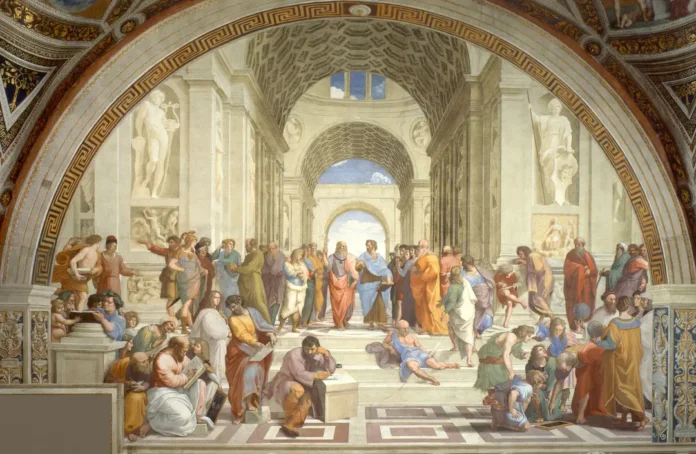Political Philosophy: The Basics, authored by Bas van der Vossen and released in October 2024 by Routledge, serves as a clear introduction to the fundamental questions of political philosophy and the reasoning that underpins them. This concise work is organized into six chapters (seven with the introduction) and explores various aspects of political philosophy, including political obligation, freedom and equality, the social contract, and justice.
The book concludes with a discussion on whether political philosophy students should engage in activism. Aimed at beginners—be they aspiring philosophers, political science students, or interested laypeople—its compactness (around 120 pages) allows for completion in just two to three hours.
Readers will find a well-structured and engaging guide to political philosophy. Each chapter clearly presents key arguments and their foundations. For instance, Socrates contends that his upbringing in the city obliges him to obey its laws, including accepting his death sentence. The text then introduces revised premises that allow for the possibility of disobeying unjust laws.
Van der Vossen encourages readers to navigate the complexities of these arguments by examining their explanatory power and alignment with political realities. This process, which he terms reflective equilibrium, aims to refine theories based on true premises and sound reasoning, acknowledging that any resulting theory may still leave some questions unanswered but will be an improvement nonetheless. Is this simply a modern twist on Plato’s dialectical method, spiced with Aristotelian logic?
However, van der Vossen does not align himself strictly with classical rationalism. He finds more comfort in modern liberal thought, referencing theorists like Locke, Hobbes, Rousseau, Hume, Mill, Wollstonecraft, Nozick, and Rawls.
Notably, he overlooks Rousseau’s criticism of private property and questions whether improvements for the wealthy, without harming the poor, would truly be rejected behind Rawls’s veil of ignorance. While his analyses seem to resonate with Rousseau’s general will and Rawls’ concepts, he ultimately leans toward a form of classical liberalism when these ideas are properly applied.
Understanding the principles of both classical and modern liberalism is invaluable. Francis Fukuyama posited that liberalism represents the culmination of ideological evolution, and van der Vossen appears to accept this view. Yet, the world remains rife with illiberal challenges. Tribalism persists in regions like Africa, Southeast Asia, and the Middle East, while various nationalisms are asserting themselves globally. Additionally, religious belief plays a significant role in shaping global communities. The book’s treatment of communalism, exclusion, and metaphysical claims feels insufficient considering its focus on the fundamentals of political philosophy.
These issues complicate the discussion. The biblical Israelites were commanded to take land occupied by others, leading to actions that many would deem unjust. How often do similar historical foundations occur amid chaos and grand claims? The divine also offers mandates for justice and humility. Isn’t the diversity of human beliefs about the world’s order a compelling reason to engage in philosophy?
The final chapter addresses the role of the political philosopher as an activist. Van der Vossen wisely suggests that philosophers should act more like scientists, striving to maintain objectivity and avoid letting personal biases distort their understanding. Achieving this reflective distance is challenging, yet he believes it is crucial for political philosophers to cultivate an openness to reality.
Did van der Vossen meet his goals? If the liberal tradition he advocates is indeed the ideal political order, then political philosophy may center on reasoning within a liberal democracy. However, this discipline should extend beyond mere moral considerations from a liberal lens to a deeper exploration of political realities. This requires engaging with thinkers like the Prophets, Thucydides, Augustine, Aquinas, Machiavelli, Spinoza, Tocqueville, Marx, Darwin, Nietzsche, Heidegger, and others.
Critics might argue that this work fails to stretch beyond the boundaries of the Western tradition or grapple with critical theories that challenge our liberal legacy. Nevertheless, it serves as an excellent primer on the dominant reasoning students and engaged citizens will likely encounter in policy discussions in the United States and the European Union.
Dr. Todd Myers is chair and professor of political economy at Grossmont College and lecturer for the Center for Asian and Pacific Studies and the Department of Economics at San Diego State University. Before joining academia, Dr. Myers worked in economic development, publishing, state government, and educational and national security consulting.
He began his career as a Ronald Reagan Fellow serving a mentorship under the direction of the Honorable Alexander Meigs Haig, Jr. He has served on the educational advisory council of the Federal Reserve Bank of San Francisco, as a Henry Salvatore Fellow with the Heritage Foundation, and a Lehrman Fellow with Princeton’s James Madison’s Program in American Ideals and Institutions.
He currently serves on the San Diego Center for Economic Education’s advisory board. Dr. Myers has research interests in international political economy and political thought.

